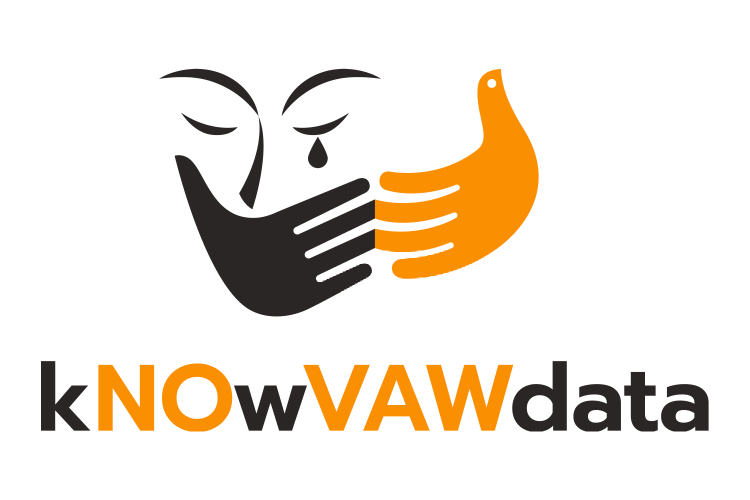Knowledge Hub

The Knowledge Hub provides links to resources supporting the measurement of violence against women and has been funded under the Pacific Spotlight Initiative. While starting with a primary focus on Pacific resources and global resources which are applicable for the Pacific region, the Knowledge Hub will continue under the UNFPA kNOwVAWdata initiative to support global knowledge exchange and a strong community of practice. The strength of this Knowledge Hub is the opportunity to share resources and support all regions of the globe.
If you would like to share links to be added to the Knowledge Hub, please send them to knowvaw-program@unimelb.edu.au.
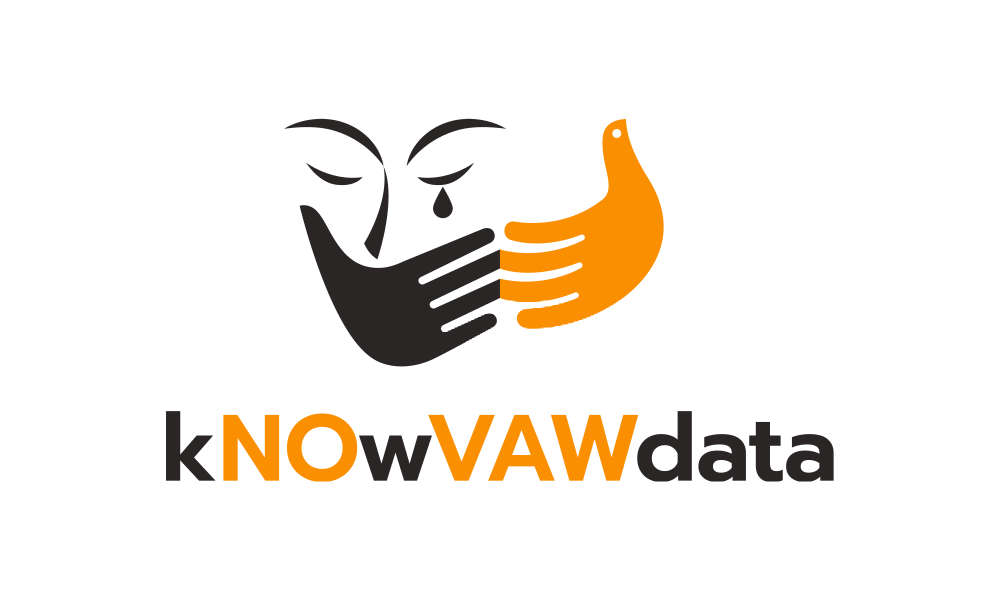
New Survey Methodologies in Researching Violence Against Women
This paper assesses the methodologies of the new national surveys of violence against women, including those in the US, Canada, Australia, Finland and the Netherlands, as well as the British Crime Survey. The development of large‐scale quantitative survey methodology so as to be suitable for such a sensitive subject has involved many innovations. The paper concludes with recommendations for further improvements including: the sampling frame, the scaling of both sexual assaults and range of...
Patterns of Womenʼs exposure to psychological violence: A global examination of low- and middle-income countries
Under Sustainable Development Goal 5, prevalence of intimate partner violence (IPV) is a globally reportable indicator. There is a lack of consensus on how to measure and report psychological IPV, affecting prevalence estimates and cross-country comparability. We examine similarities and differences in the patterning of women's experiences of psychological abuse in low- and middle-income countries (LMICs) to inform common cut points.
A scoping review of measurement of violence against women and disability
A scoping review with a focus on measurement to assess the forms of measurement and study design utilized to explore the intersection of violence against women with disabilities, and to identify strengths and limitations in current approaches to measuring violence against women with disabilities. This scoping review is designed to inform current debates and discussions regarding how to generate evidence concerning violence against women with disabilities.
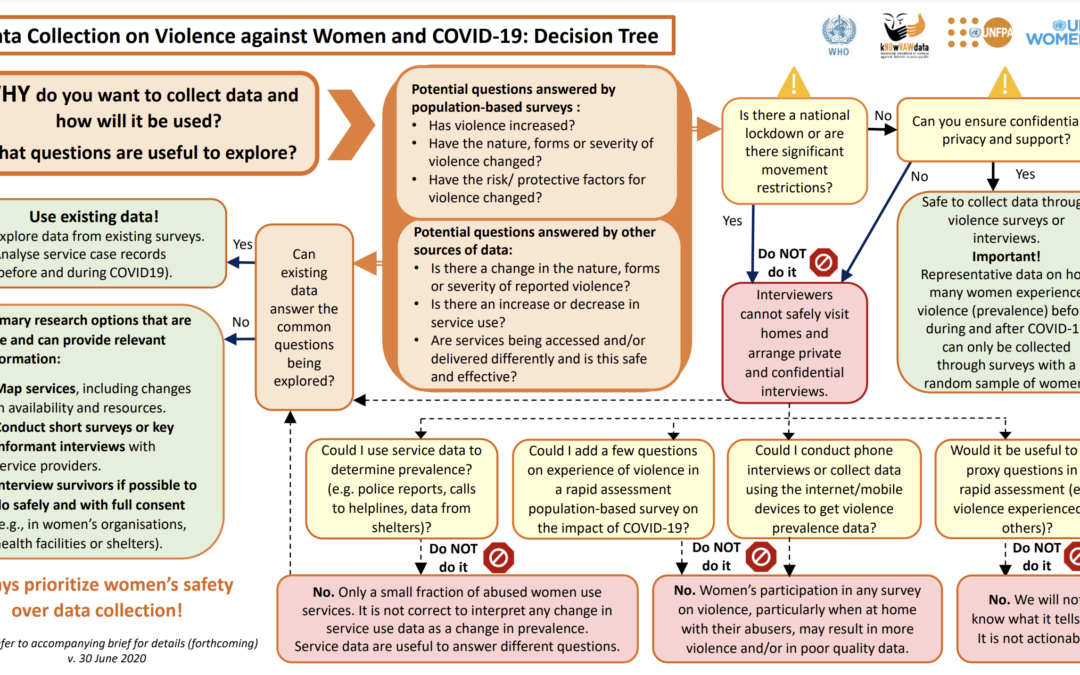
Decision tree: Data Collection on Violence against Women and COVID-19
This decision tree helps organisations with gender-based violence programmes, national statistical offices, policymakers and researchers decide when and how to best collect data on women's experiences of violence and their access and use of relevant services during the COVID-19 pandemic.
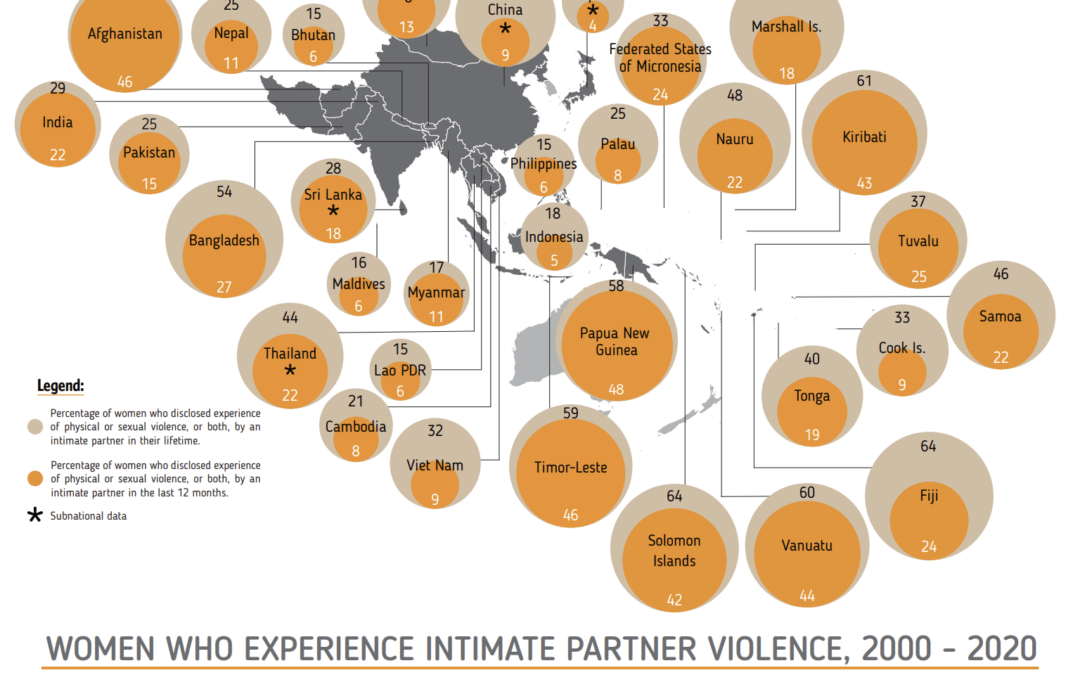
Violence Against Women – Regional Snapshot (2020) – kNOwVAWdata
2020 map of violence against women prevalence in Asia-Pacific region
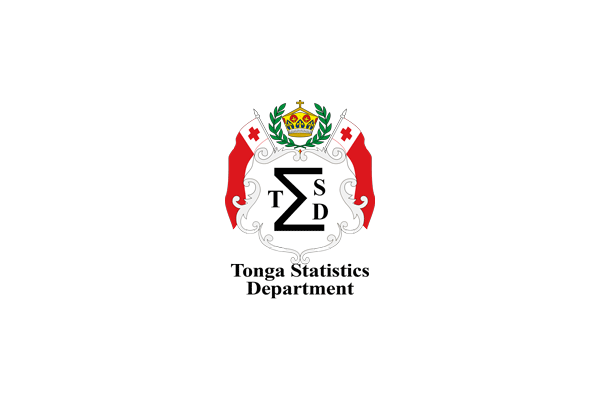
2019 Tonga Multiple Indicator Cluster Survey
An international survey program that is the largest source of statistically sound and internationally comparable data on women and children worldwide. The Tonga MICS collected data on health, nutrition, child protection, education, water, sanitation and hygiene as well as domestic violence amongst other topics.
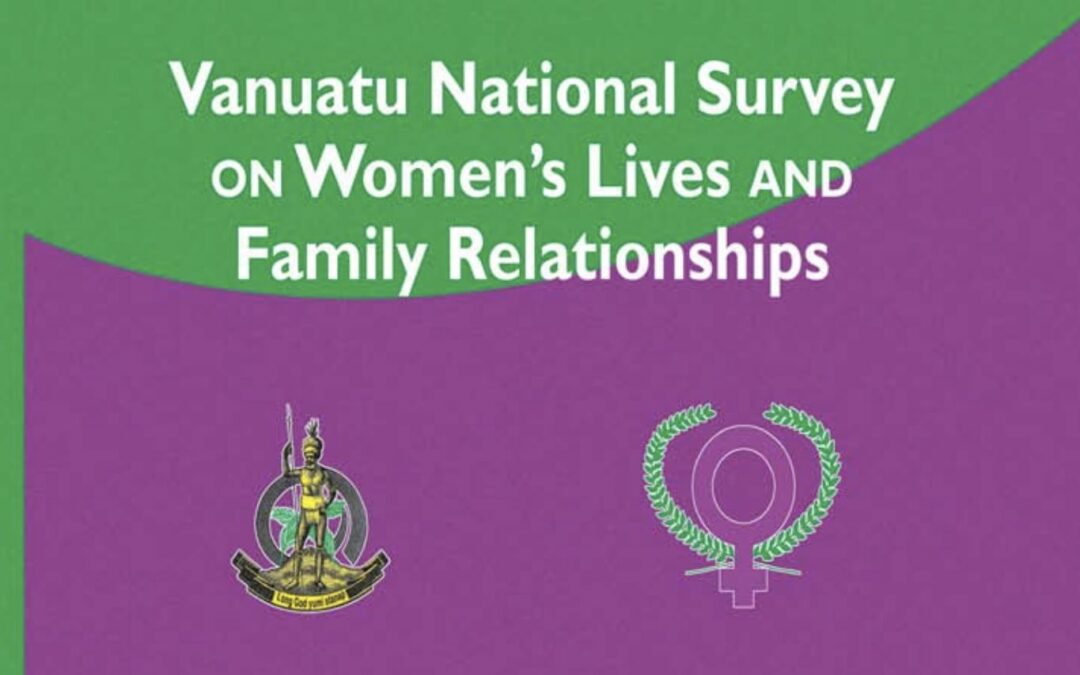
Vanuatu National Survey on Women’s Lives and Family Relationships
This population-based study provides a reliable benchmark of the prevalence and incidence of violence against women in Vanuatu, and on attitudes to violence including: health and other effects of VAW and children; risk and protective factors in the family and the community; coping strategies; and the implications for prevention and support services.
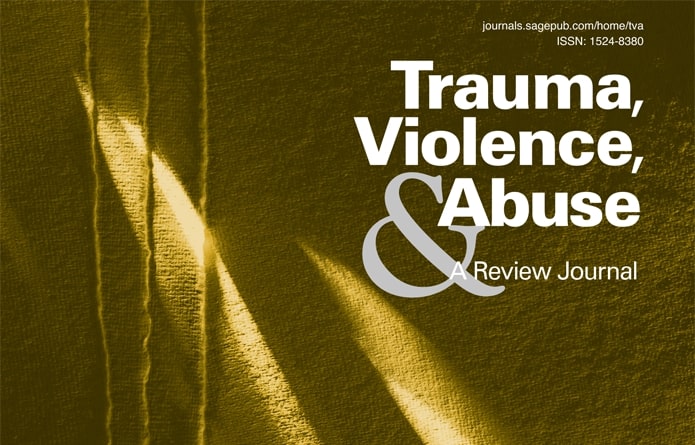
Survey data sets pertinent to the study of intimate partner violence and health
This article describes some currently available survey data sets that contain information regarding women's experiences of intimate partner violence and health, identifies a number of the strengths and limitations of these data sets, and makes recommendations concerning the types of survey data that should be gathered in the future to help move the field forward.
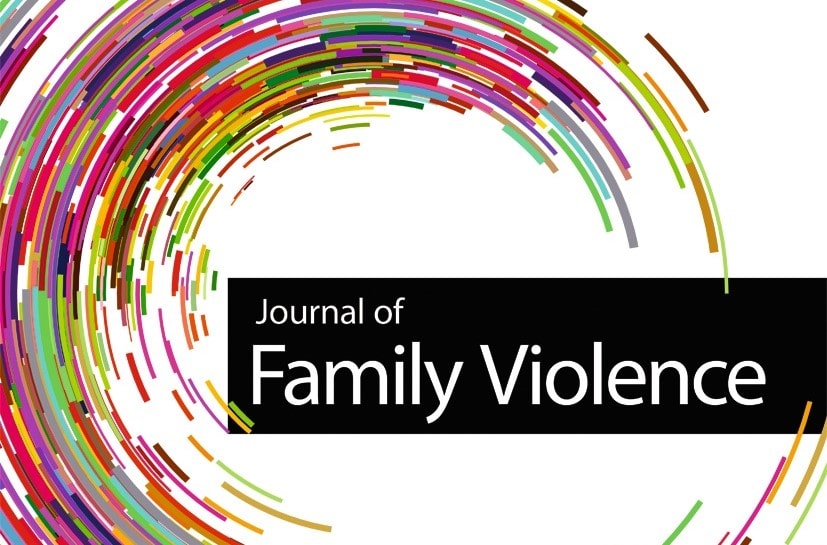
Intersectionality and Invisible Victims: Reflections on Data Challenges and Vicarious Trauma in Femicide, Family and Intimate Partner Homicide Research
This article draws upon the experiences of four researchers in the field of femicide, family and intimate partner homicide - and offers insights into processes, impacts and unintended consequences of fatality reviews and research initiatives
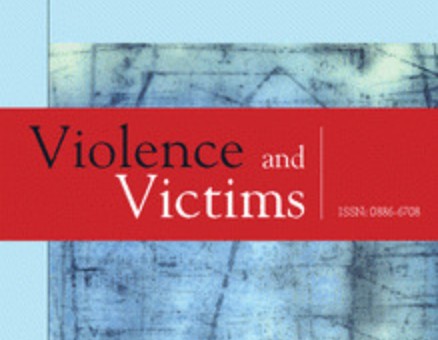
Maternal Childhood Parental Abuse History and Current Intimate Partner Violence: Data From the Pacific Islands Families Study
The aim of the study was to establish the association between the experience of maternal and/or paternal emotional or physical abuse and current severe physical partner violence perpetration or victimization among a cohort of Pacific women.
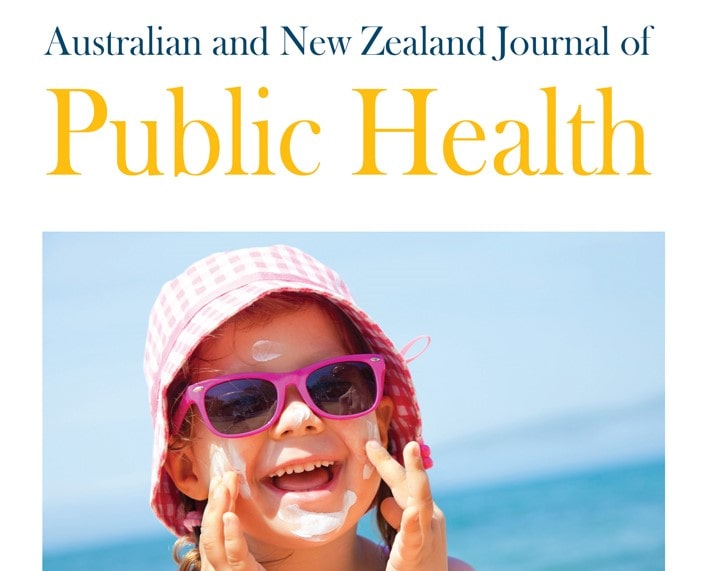
Factors associated with induced abortion over time: secondary data analysis of five waves of the Australian Longitudinal Study on Women’s Health
Objective: A trend analysis of associations with induced abortion. Methods: Secondary analysis of the Australian Longitudinal Study of Women's Health (N=9042). Conclusions: Abortion remains strongly associated with factors affecting women's control over reproductive health such as partner violence and illicit drug use.
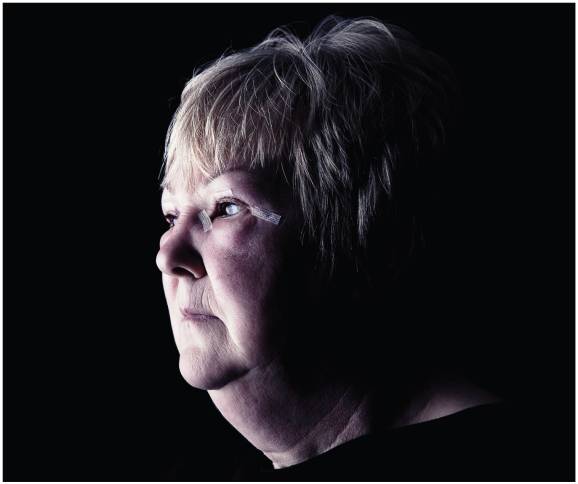
New WHO guidelines on intimate-partner violence
The World Health Organization (WHO) has issued new practice and policy guidelines to help health care practitioners screen, treat and support victims of sexual and partner violence.
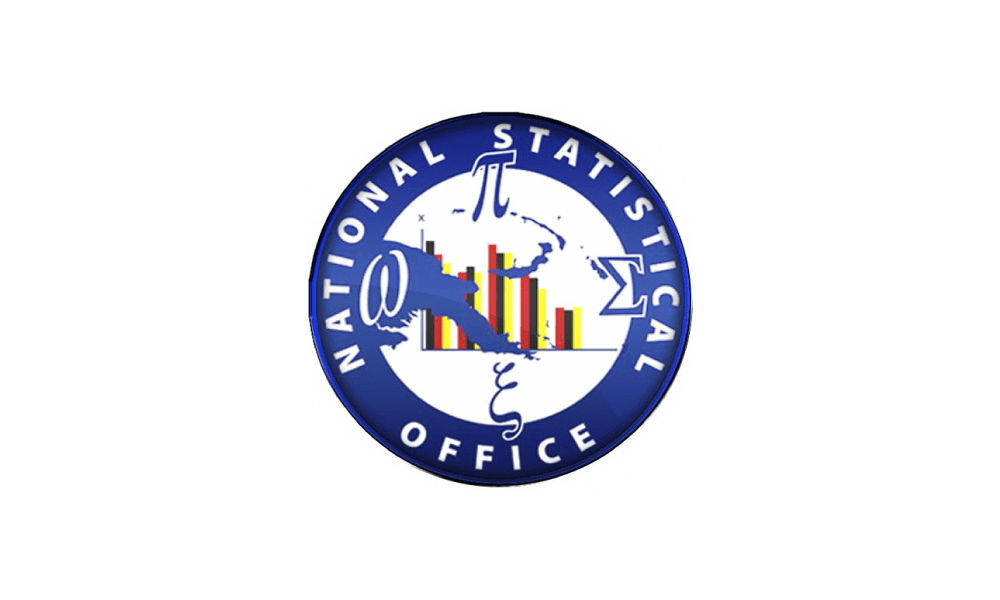
PNG Demographic Health Survey 2016-18 Report
The 2016-18 PNG DHS final report provides information on basic indicators of fertility, fertility preferences, family planning practices, childhood mortality, maternal and child health, knowledge and awareness of HIV/AIDS, domestic violence, and other related health issues.
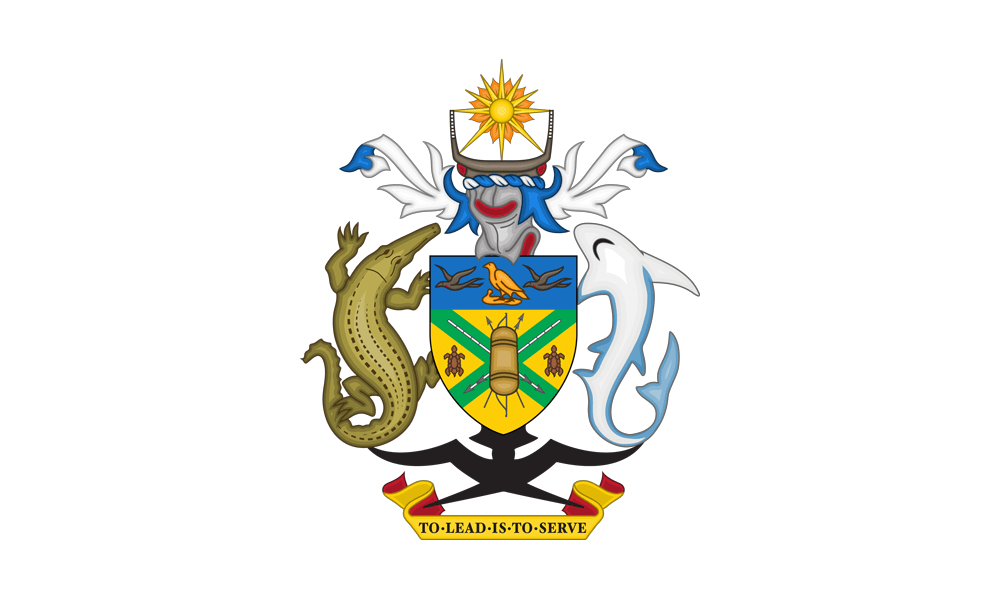
2006/2007 Solomon Islands Demographic and Health Survey (2007 SIDHS)
The primary objective of the survey was to provide up-to-date information for policy-makers, planners, researchers and program managers to use in the planning, implementation, monitoring and evaluation of population and health programs in the country. The survey was intended to provide key estimates of the demographics and health of the country. In addition, the content of the survey was expanded to include questions on disability and gender-related violence.
